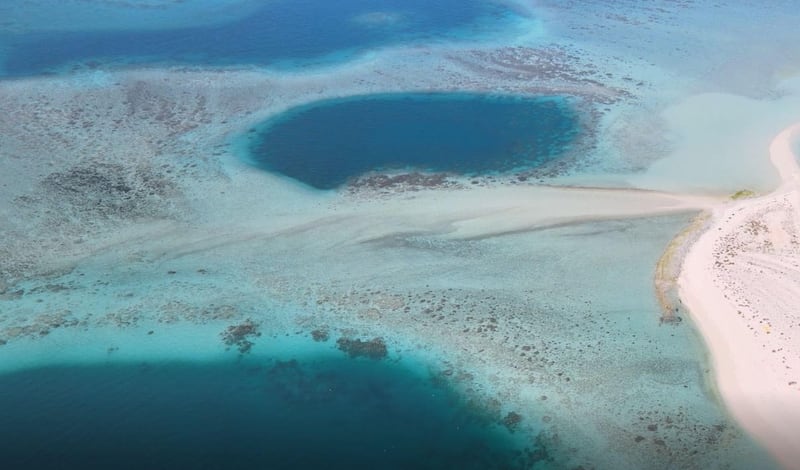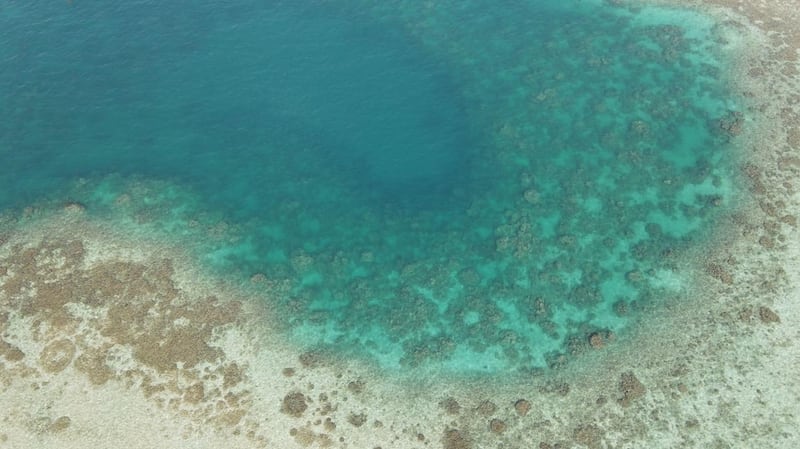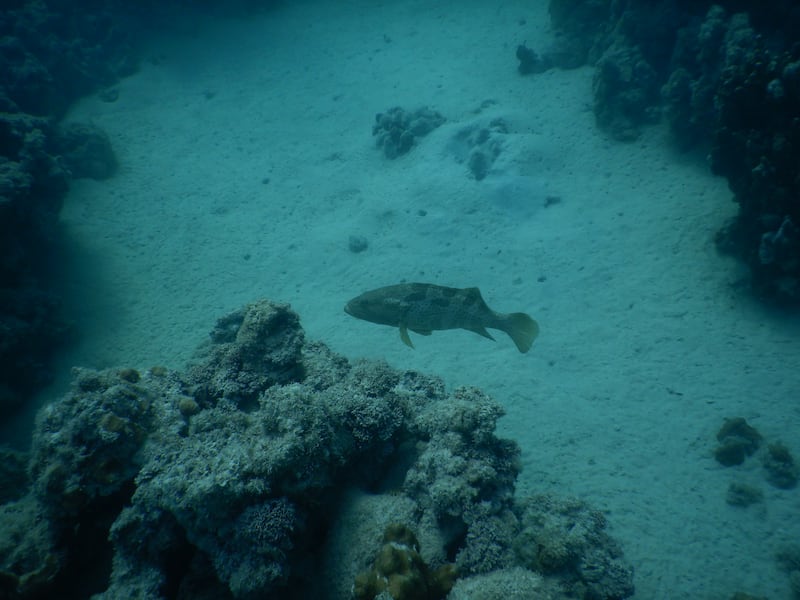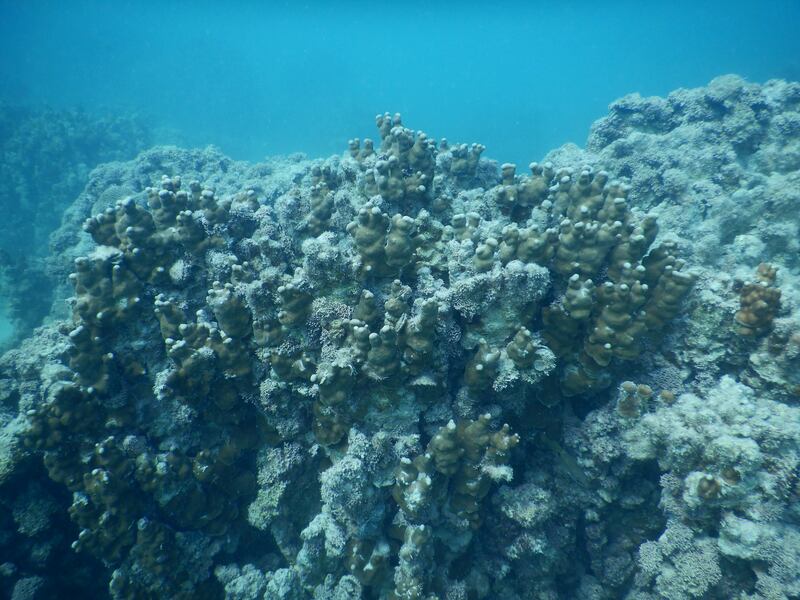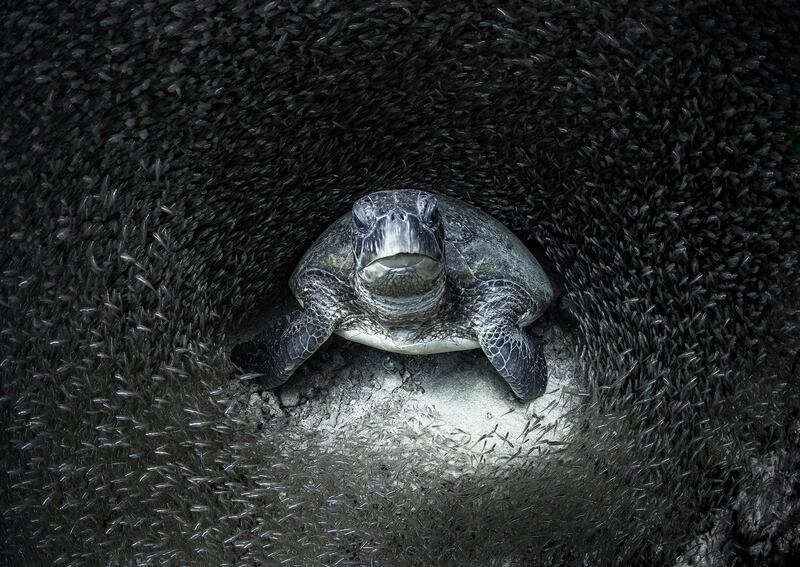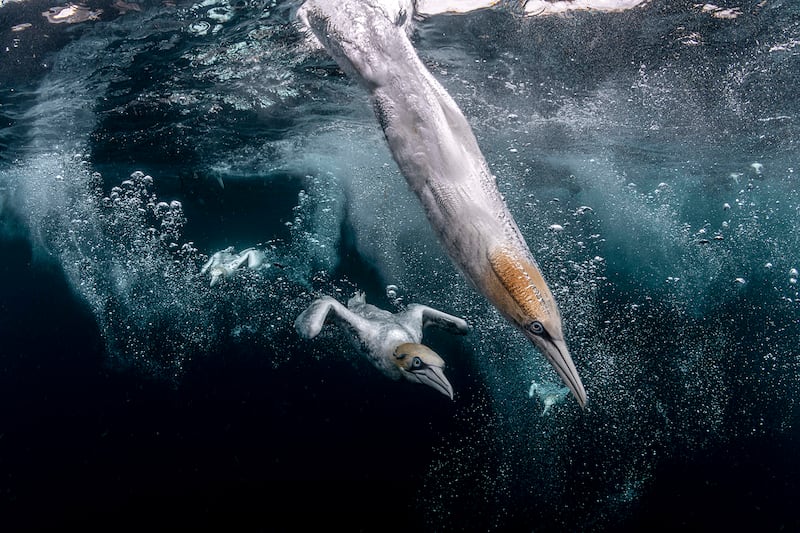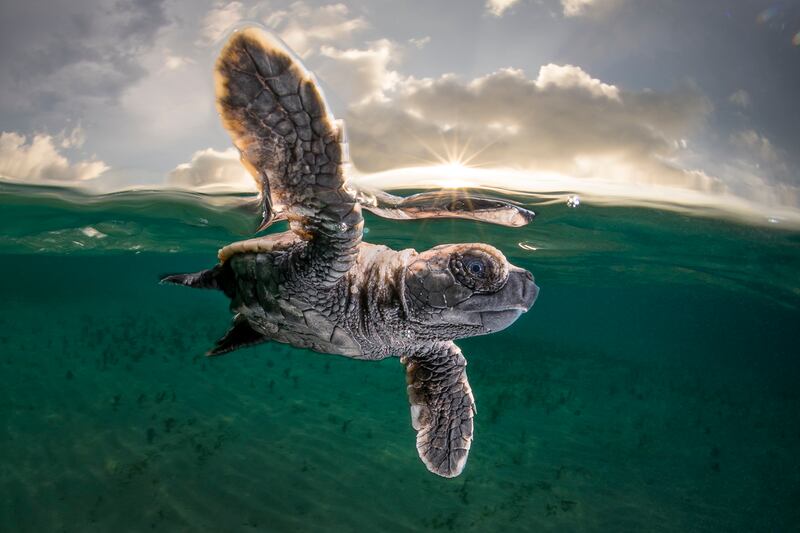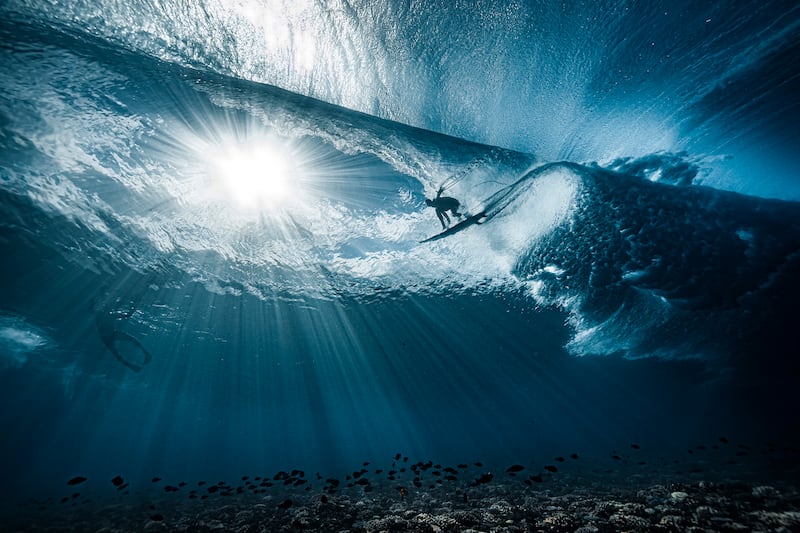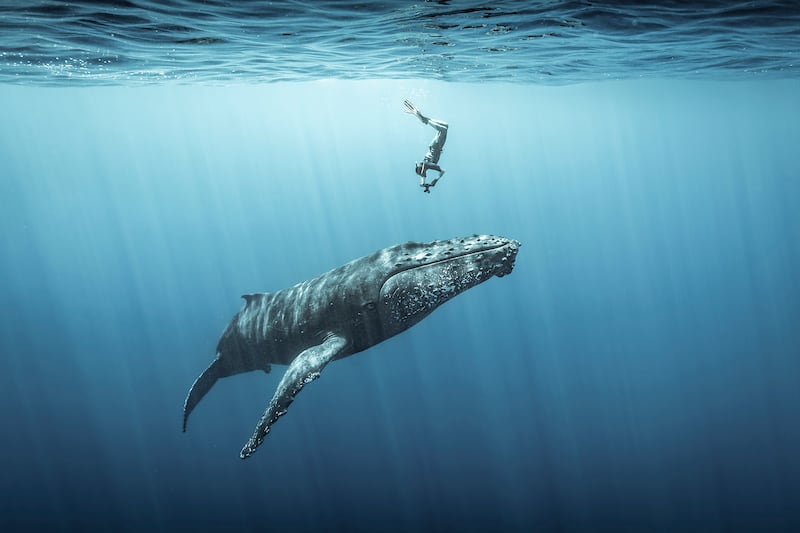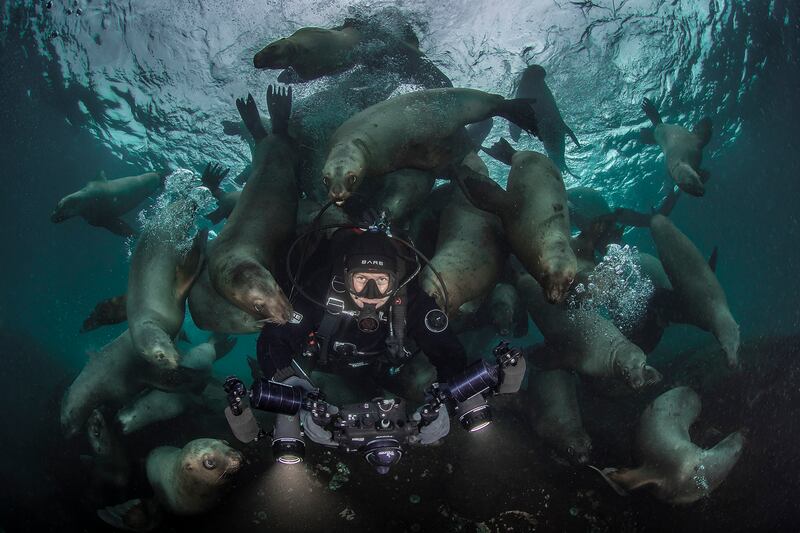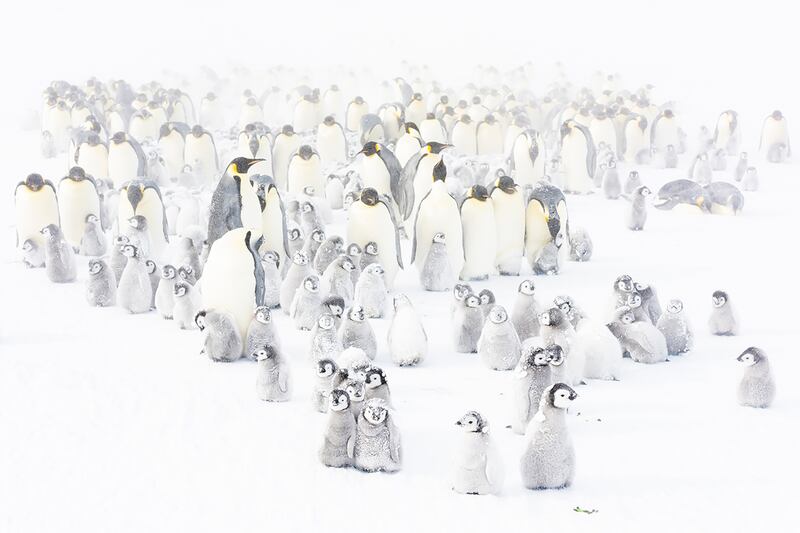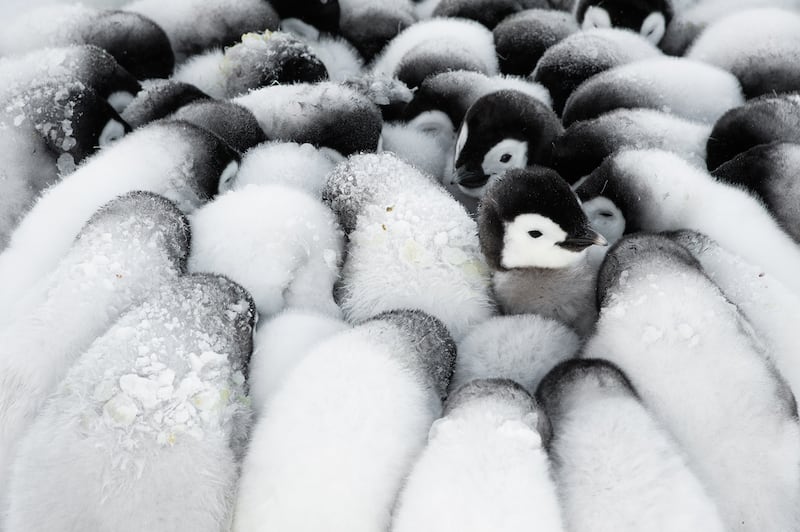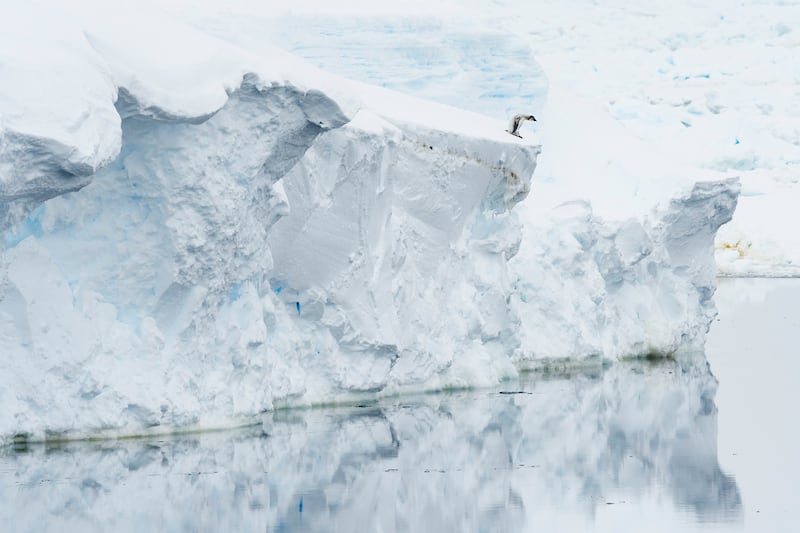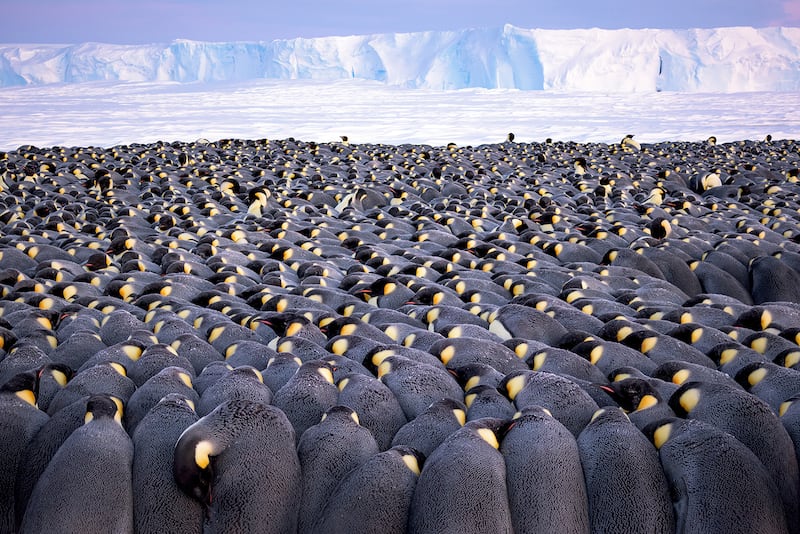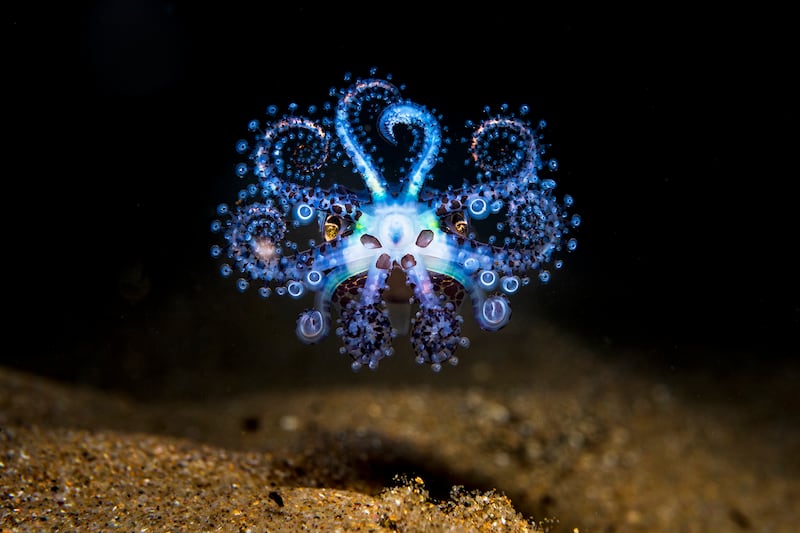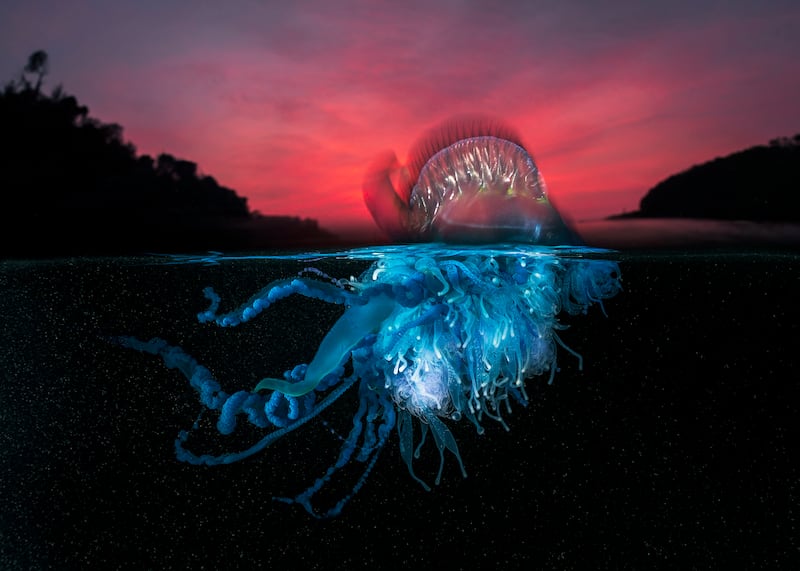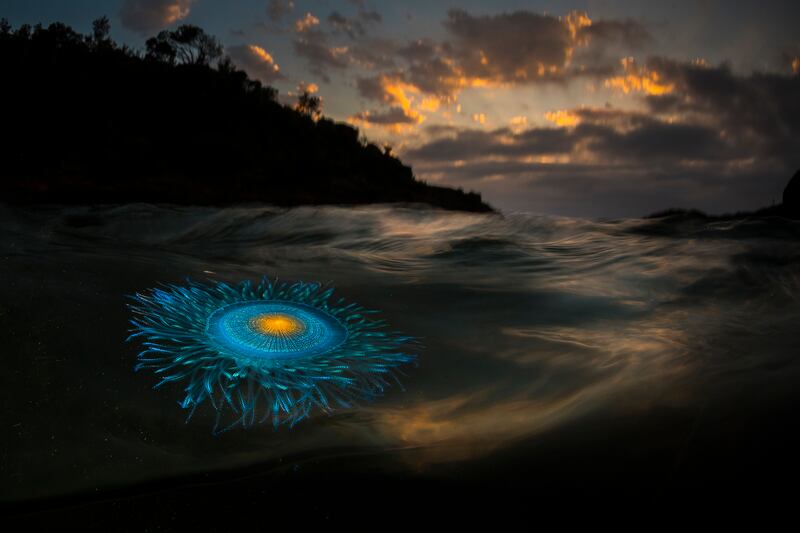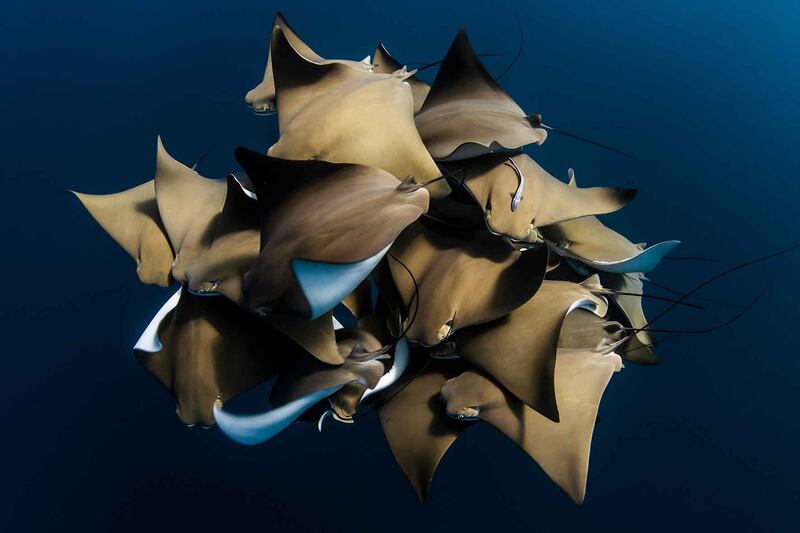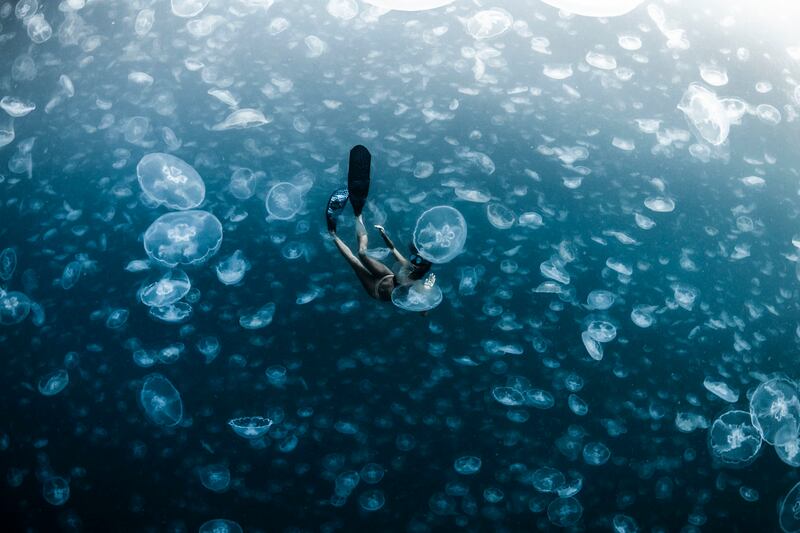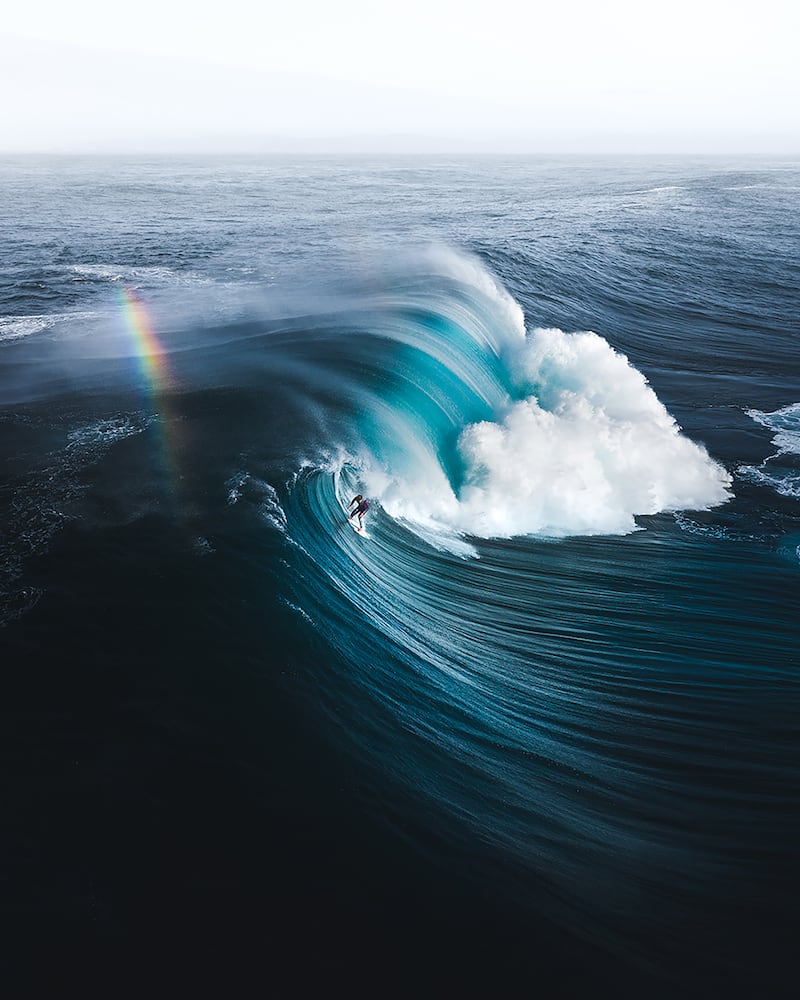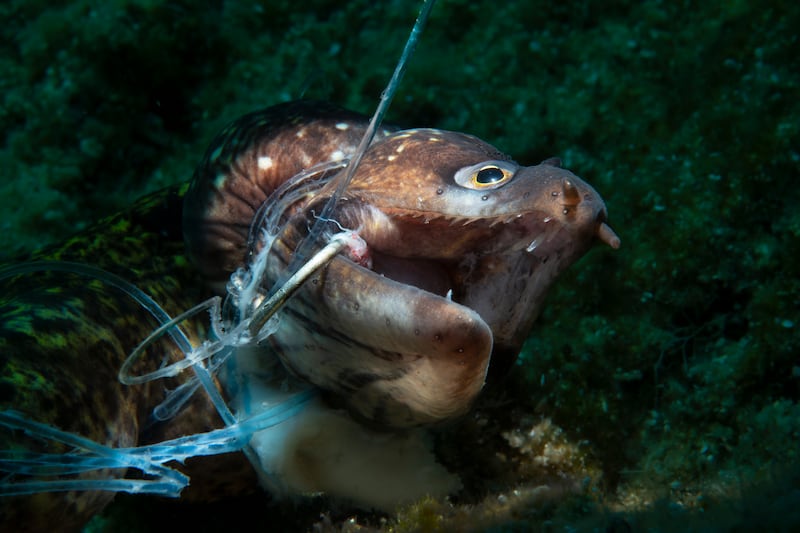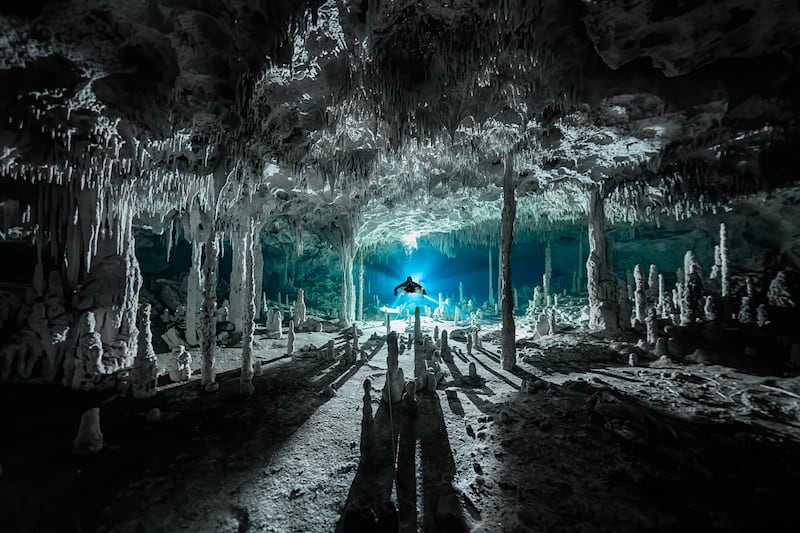Find out more: Exploring the underwater phenomenon of blue holes
A rare “blue hole” has been discovered in the Arabian Gulf by environment chiefs in Abu Dhabi.
The underwater sinkhole lies just off Al Dhafra and is about 12 metres deep, 200 metres wide and has an area of about 45,000 square metres.
The Environment Agency Abu Dhabi said it was a “recent discovery in a routine inspection” and was being monitored as part of regular surveys and assessments.
It provides a unique habitat for fish such as grouper, sweetlips, emperor fish and jackfish, and holds at least 10 types of coral species, which form a reef at the edges of the hole.
The agency said it was significant because it “provides a glimpse of how historic reefs used to look in Abu Dhabi".
Experts will conduct an environmental assessment survey of the unique ecosystem to learn more about its geological composition. This will involve mapping the area and analysing seawater.
The agency will also conduct scientific and topographic surveys.
Similar holes can be found around the world. The deepest blue hole, the Yongle, lies in the South China Sea and reaches 300 metres beneath the seabed.
Other famous blue holes include the “Great Blue Hole” in Belize; “Gozo’s Blue Hole” in Malta; the Blue Hole at Dahab in Egypt and “Dean’s Blue Hole” in the Bahamas.
“These unique structures attract divers from all over the world and are home to fringing reefs and diverse fish species, and at their depths, they host diverse microbial communities,” said the Environment Agency Abu Dhabi.
Sinkholes of this type were usually formed in limestone rock during the Ice Age when sea levels were low. Water eroded the stone over time and left an opening that water rushed into as sea levels climbed.
Ocean Photography Awards 2021 - in pictures
Scroll below to see stunning images of ocean life taken this year.
